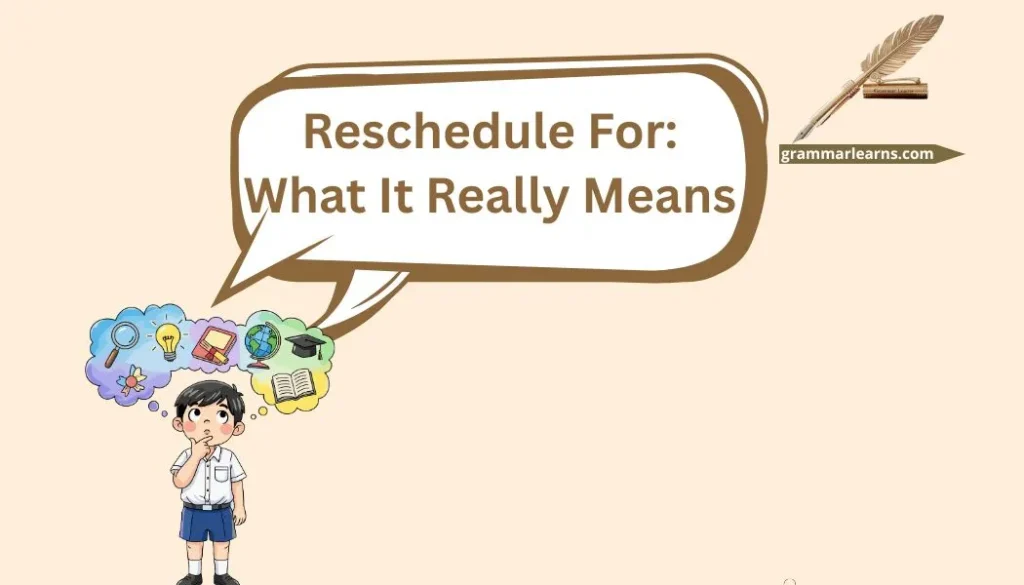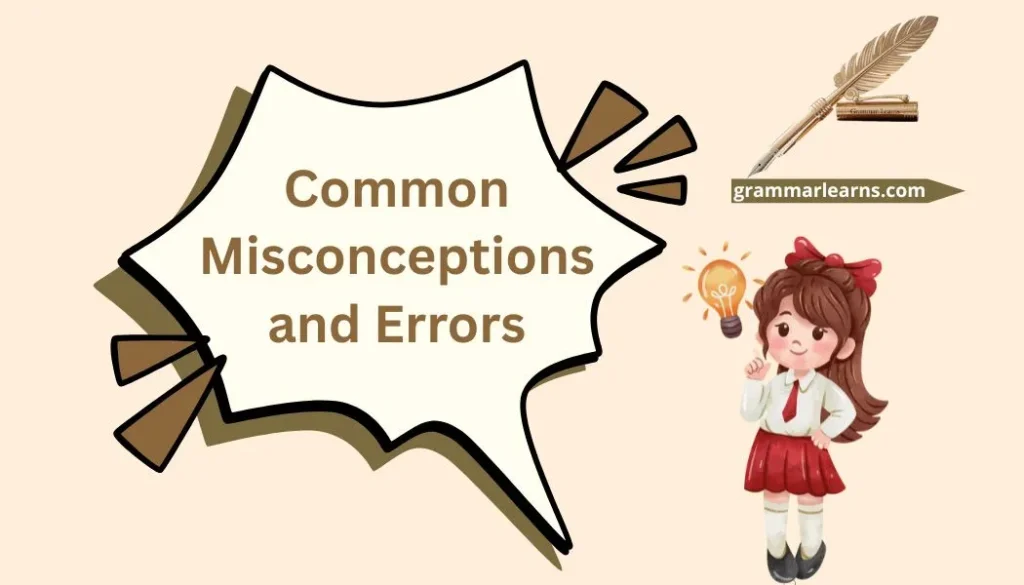Have you ever wondered about the phrase Reschedule to or Reschedule For? This comes up often when meetings shift, and even native speakers sometimes hesitate. Picture a team moving an important session by just a few days – suddenly, the choice between “to” and “for” turns into a puzzle for learners of English.
The rules may look simple, yet exceptions creep in. You’d typically use “to” when pointing to a specific day and time. By contrast, “for” works better for a general period, such as “next week” or “a few weeks ahead.” Many professionals even double-check emails or quick grammar guides before sending, just to avoid uncertainty.
When deadlines loom, missing the right preposition can feel stressful. The good news is the pattern isn’t hard once you’ve practiced it. Use “to” for precision and “for” for broader scheduling. This small adjustment makes your writing clearer and leaves you sounding confident, no matter how often plans change.
Understanding the Basics of Rescheduling

To reschedule simply means to change the time or date of an appointment, event, or task. You’re not canceling- it’s still happening- but you’re moving it.
Rescheduling appears in:
- Workplace communication: moving team meetings, deadlines, or interviews.
- Healthcare: shifting doctor or therapy appointments.
- Education: adjusting exam times or lectures.
- Daily life: changing lunch, gym, or personal plans.
The confusion comes when you add prepositions. English prepositions like to and for often overlap in meaning, but in scheduling, they serve different roles. Let’s break them down.
Reschedule To: What It Really Means

The preposition “to” connects one point in time to another. When you say “reschedule to,” you’re directly anchoring an event to a new date or time.
Examples:
- “We had to reschedule the meeting to Tuesday at 3 PM.”
- “The flight was rescheduled to December 5th.”
- “Can we reschedule to tomorrow morning instead?”
Notice how to links the event to a specific point. It’s about precision.
When to Use “Reschedule To”
You should use reschedule to when:
- You’re assigning a clear date, day, or time.
- You’re moving something to an exact schedule slot.
- You want to avoid vagueness in formal settings.
Case Study: Business Meetings
A project team originally had a meeting on Wednesday at 2 PM. Due to conflicts, they decide to move it. Saying “Let’s reschedule to Friday at 9 AM” leaves no doubt. Everyone knows the new time.
Examples of “Reschedule To” in Daily Communication
- Workplace: “The training session was rescheduled to March 14th at noon.”
- Personal: “Can we reschedule dinner to next Friday evening?”
- Academic: “The lecture is rescheduled to 10 AM instead of 8 AM.”
Incorrect Usage Example:
- ❌ “The interview is rescheduled for 10 AM.”
→ This can sound ambiguous. Is 10 AM the purpose of rescheduling, or the new time?
Reschedule For: What It Really Means

The preposition “for” is broader. It emphasizes the occasion, day, or purpose, rather than pinning down the exact minute.
Examples:
- “We rescheduled the check-up for Monday.”
- “The ceremony was rescheduled for spring.”
- “Let’s reschedule the call for next week.”
Here, the focus isn’t on the exact hour- it’s on the general timing or reason.
When to Use “Reschedule For”
Use reschedule for when:
- You’re highlighting a day, event, or time period rather than a clock-specific schedule.
- You want to emphasize suitability, not precision.
- You’re speaking more casually.
Case Study: Healthcare Scheduling
A doctor’s office tells a patient: “We’ll reschedule your appointment for next Monday.” This works because the patient doesn’t need the exact time yet- the focus is just on the new day.
Examples of “Reschedule For” in Different Contexts
- Workplace: “The product launch was rescheduled for next quarter.”
- Personal: “Let’s reschedule our walk for the weekend.”
- Education: “The class has been rescheduled for the afternoon.”
Incorrect Usage Example:
- ❌ “The event is rescheduled to the afternoon.”
→ Sounds unnatural, because to is too exact for something general like “afternoon.”
Comparing “Reschedule To” vs. “Reschedule For”

The simplest way to understand the difference is to look at focus:
| Phrase | Focus | Example |
| Reschedule To | Specific time/date | “The meeting was rescheduled to 4 PM.” |
| Reschedule For | General day/purpose | “The meeting was rescheduled for Monday.” |
Quick Trick to Remember:
- If you can attach an exact clock time or date, use to.
- If you’re speaking in broader terms, use for.
Common Misconceptions and Errors

Even native speakers mix these up. Here are common pitfalls:
- Using “for” when you mean a specific time.
- ❌ “The conference is rescheduled for July 7th at 2 PM.”
- ✅ Correct: “The conference is rescheduled to July 7th at 2 PM.”
- Overusing “to” in casual contexts.
- ❌ “We rescheduled dinner to the weekend.”
- ✅ Better: “We rescheduled dinner for the weekend.”
- Assuming they’re interchangeable. They’re not. Context dictates the right one.
Practical Tips for Choosing the Right Phrase

When in doubt, ask yourself: Am I talking about a specific clock time, or just a day/occasion?
Here’s a quick checklist:
- If exact: use to.
- If general: use for.
- If in doubt: read it aloud. Which one sounds natural?
Email Templates with Correct Usage
Example 1: Using “Reschedule To”
Dear Ms. Harris,
Due to a scheduling conflict, may I reschedule our call to Thursday at 10 AM? Please let me know if this works for you.
Best regards,
Jordan
Example 2: Using “Reschedule For”
Hi Alex,
Can we reschedule our lunch for next week? I’m flexible on the day.
Thanks,
Emily
Broader Lessons About Prepositions in English

This issue highlights a broader challenge: English prepositions often overlap, but small shifts change meaning.
Similar cases include:
- Apply to vs. Apply for
- Interested in vs. Interested at
- On time vs. In time
These distinctions frustrate learners, but they’re key for sounding natural and professional.
Quote from Linguist David Crystal:
“Prepositions are tricky not because they lack logic, but because their logic is rooted in usage, not rules.”
Related Language Guides

- Should You Use “Certain” or “Specific”? What’s the Difference?
- “May or May Not” – Meaning Explained (With Examples)
- 12 Alternatives to “As Per Your Request” for Business Communication
- Yoghurt vs. Yogurt: Understanding the Spelling Differences
- Function vs. Functionality – What’s the Difference?
- Means of vs. Means for vs. Means To – Which Is Correct?
Making Confident Language Choices

The difference between reschedule to and reschedule for isn’t about correctness- it’s about precision versus generality.
- Use reschedule to when giving a specific date or time.
- Use reschedule for when talking about a day, period, or reason.
Mastering this small detail can make your communication sharper, clearer, and more professional. Whether you’re writing an email to your boss, texting a friend, or booking an appointment, you’ll now know which phrase fits best.
Final Thoughts
Language thrives on clarity. Choosing between “reschedule to” and “reschedule for” may look like a minor detail, yet it shapes how your message is received. In professional environments, the wrong choice can create scheduling confusion or appear careless. That’s why understanding the nuance is more than grammar- it’s a tool for credibility.
Think of “reschedule to” as your go-to phrase when pinpointing a precise slot. It works perfectly when you need to show exactness, like confirming a client meeting at 3 PM. On the other hand, “reschedule for” broadens the scope. It suggests general timing or purpose, such as moving lunch plans to the weekend or shifting an event into next month.
Using them correctly isn’t just about impressing grammar purists. It’s about showing respect for other people’s time. When you communicate with accuracy, you leave no room for second-guessing. That builds trust- whether with colleagues, customers, or friends.
Next time you’re about to send that email or text, pause for a second. Ask yourself: Am I pointing to a specific time, or just a day or occasion? The answer will tell you whether “to” or “for” fits best. Small choices like this add up to clearer, more professional communication.
FAQs
Is it correct to say “reschedule to”?
Yes. Use “reschedule to” when specifying an exact time or date, such as “The meeting was rescheduled to Friday at 2 PM.” It shows precision and eliminates ambiguity.
When should I use “reschedule for”?
Use “reschedule for” when referring to a general day, event, or purpose rather than an exact time. For example, “The appointment was rescheduled for next week” works because the focus is on the period, not the clock.
Can I use “reschedule to” and “reschedule for” interchangeably?
Not always. They may look similar, but context changes their meaning. “Reschedule to” fits when locking a specific slot, while “reschedule for” suits general timing. Using them interchangeably can confuse your reader or listener.
Which is more formal: reschedule to or reschedule for?
Both are grammatically correct in formal writing. However, “reschedule to” is often preferred in business and official communication because it gives precise details. “Reschedule for” works in casual or less rigid contexts.
How do I quickly remember the difference between ‘to’ and ‘for’?
Here’s a simple trick: if your sentence mentions an exact time or date, use “to.” If it’s about a general day, period, or occasion, use “for.” Reading the sentence aloud also helps spot what sounds natural.
